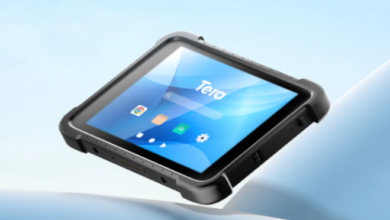How Energy-Efficient Are Modern Air Conditioning Systems?

Air conditioning is essential for maintaining comfort during Sydney’s hot summers and cool winters. However, with rising electricity costs, many homeowners are seeking more energy-efficient solutions. Fortunately, modern air conditioning systems come equipped with advanced features designed to reduce energy consumption while maintaining consistent comfort.
How Do Modern Air Conditioning Systems Work?
Modern systems use refrigerant to absorb indoor heat and release it outside, cooling the space efficiently. Unlike older models that cycle on and off, inverter technology allows the compressor to adjust its speed based on temperature needs, reducing energy consumption. This results in a more consistent temperature and lower running costs.
Key Energy-Efficient Features of Modern Air Conditioning Systems
Inverter Technology
Inverter systems run at variable speeds, consuming less power compared to traditional systems that frequently turn on and off. This reduces electricity use by up to 30%.
Zoning Capability
Ducted systems allow zoning, meaning you can heat or cool specific areas rather than the entire house. This prevents unnecessary energy use in unused rooms, making the system more efficient.
Eco-Friendly Refrigerants
Modern systems use R32 refrigerant, which improves system efficiency and has a lower environmental impact compared to older refrigerants like R410A.
High Energy Star Ratings
The Energy Star Rating System helps homeowners choose energy-efficient systems. Air conditioners with more stars use less electricity, leading to long-term cost savings.
Smart Controls and Timers
Many systems offer WiFi-enabled controls and programmable timers, allowing homeowners to adjust settings remotely and optimise usage for maximum efficiency. For those considering air conditioning installation in Penrith, choosing a system with these features ensures long-term energy savings.
How Much Energy Do Modern Air Conditioners Use?
Energy usage varies depending on system type and size:
- Split systems: 500–2,000 watts per hour.
- Ducted systems: 2,000–5,000 watts per hour.
- Multi-split systems: Use less energy for multiple zones compared to running multiple split units.
Comparing Modern Air Conditioners to Older Systems
Modern systems outperform older models by:
- Reducing energy consumption – Inverter technology cuts power usage by up to 30%.
- Maintaining consistent temperatures – No frequent on-off cycling.
- Lowering environmental impact – Eco-friendly refrigerants contribute to reduced emissions.
Tips to Maximise Energy Efficiency
- Set optimal temperatures – 24°C in summer and 18-20°C in winter.
- Clean or replace filters regularly – Dirty filters reduce system efficiency.
- Use timers and smart settings – Automate system operation to prevent unnecessary usage.
- Ensure proper insulation – Prevent heat loss and maintain stable indoor temperatures.
Government Incentives and Rebates
Homeowners in Australia may be eligible for energy efficiency rebates and incentives when installing high-efficiency systems, helping reduce upfront costs.
Read also: Huawei’s Data Center Technology: Redefining Industry Standards
Next Steps
Modern air conditioning systems are far more energy-efficient than older models, offering consistent comfort while lowering electricity costs. By choosing a system with inverter technology, zoning, and smart controls, homeowners can reduce their environmental impact and enjoy long-term energy savings.



